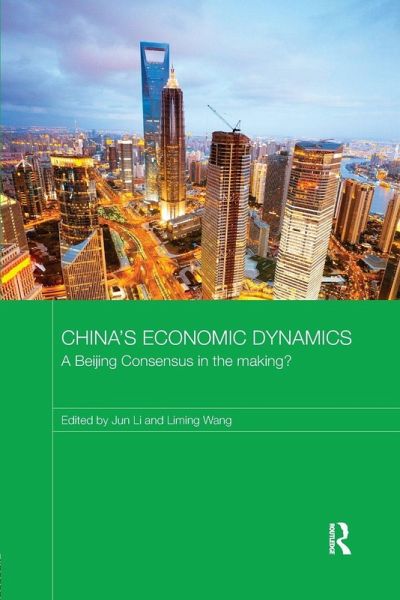
China's Economic Dynamics
A Beijing Consensus in the making?
Herausgeber: Li, Jun; Wang, Liming

PAYBACK Punkte
32 °P sammeln!
This book examines the key challenges currently facing the Chinese economy. It considers Chinas' increasing global impact, discusses the institutional drivers of China's economic growth, assesses critically China's need for structural reform, and explores issues related to sustainability and human rights.




